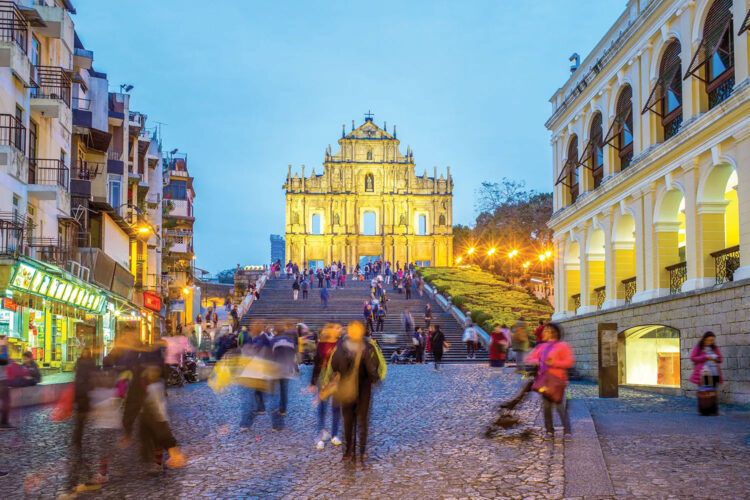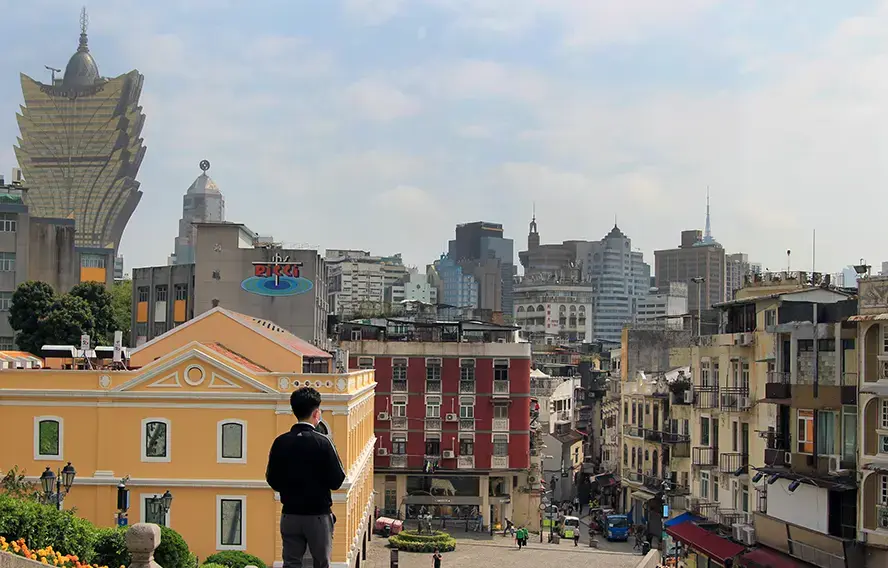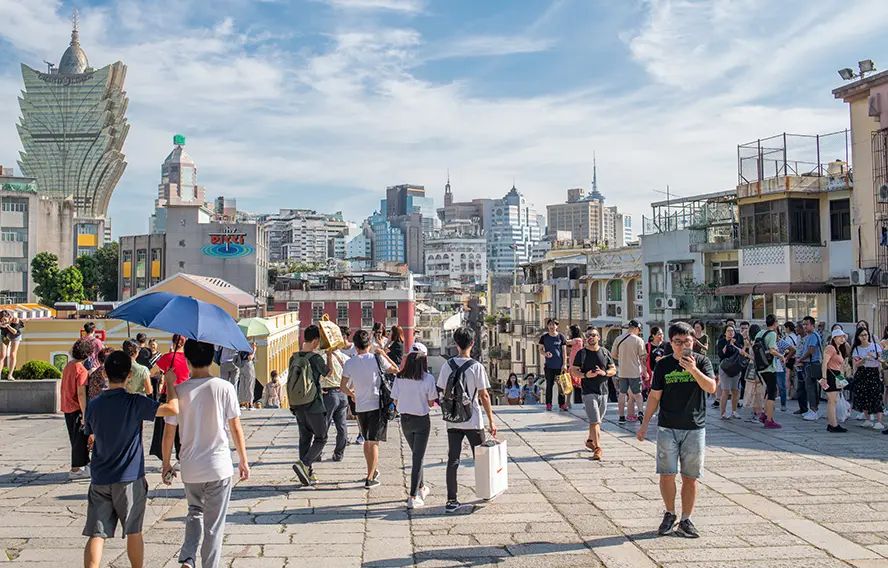Two-and-a-half years after COVID-19 struck, tourism industries around the world are gradually recovering. However, Macau is still in a state of lockdown with tourism operators suffering significant pain. The question now is: what will the future of the tourism industry look like?
In early September, the Macao SAR Government began allowing citizens from 41 countries to enter Macau, ending two-and-a-half-year-long international “lockdown” (although foreigners still have to undergo seven days of quarantine upon entry). Despite this positive step forward, the new measure has provided little help to the Macau tourism and gaming industries given ongoing travel restrictions in Macau’s main feeder market of mainland China and the fact that international visitors remain reluctant to undergo seven days of quarantine.
 Commenting on the current status of the Macau tourism industry, a former tour guide, who ditched his five-year career and is now working as a food delivery driver, told Inside Asian Gaming that the policies in place now are conflicting.
Commenting on the current status of the Macau tourism industry, a former tour guide, who ditched his five-year career and is now working as a food delivery driver, told Inside Asian Gaming that the policies in place now are conflicting.
“If the Macau government allows foreign tourists to enter quarantine-free, it will be in apparent conflict with the mainland epidemic prevention policies,” he said.
“The major source market of Macau is still the mainland. If foreign visitors can enter quarantine-free, the mainland will close its border to Macau, making Macau just like Hong Kong.”
The borders between Hong Kong and the mainland are still effectively closed.
Mainland China is an enormous tourism source market – providing 71% of Macau’s 39.4 million visitors in 2019. But can Macau be satisfied with solely mainland visitors? The former tour guide thinks Macau is in an impuissant position, with the SAR needing to perfectly align with mainland policies if it is to rely on mainland tourists. But juggling an enormous population with strict zero-COVID policies means lockdowns and restrictions across the mainland are certain to keep happening, which in turn severely impacts the Macau tourism industry.
 “Mainland tourists are vital, but relying only on the mainland market will make Macau vulnerable,” the former tour guide said.
“Mainland tourists are vital, but relying only on the mainland market will make Macau vulnerable,” the former tour guide said.
“The mainland has been frequented by outbreaks and lockdowns so far this year, and mainland tourists are much less willing to travel because they are worried about not being able to return home once they travel.”
He recognizes that Macau has no real say in its tourism policy, instead relying on instructions from the Chinese government. The only optimism might come if and when China gives up its “zero-COVID” policy, but he does not foresee any changes within this year.
 The Macau government has listed “exploring foreign source markets” as one of the requirements in its casino license public tender and reiterated that Macau needs to explore overseas markets rather than continuing to rely so heavily on mainland visitors.
The Macau government has listed “exploring foreign source markets” as one of the requirements in its casino license public tender and reiterated that Macau needs to explore overseas markets rather than continuing to rely so heavily on mainland visitors.
The former tour guide remains cautious about this policy as he believes a problem remains around flights into Macau.
“Macau did not put too much effort into developing international flight routes [before COVID],” he said.
“For the routes connecting Macau and major tourist destinations such as Japan, South Korea and Thailand, the flights are not as frequent and the tickets are more expensive than in Hong Kong. The airport of Macau is not attractive to international visitors at all.

“Of course, foreign visitors can choose to fly to Hong Kong before coming to Macau, but how many do you think would do this?”
Andy Wu, Chairman of the Travel Industry Council of Macau, told IAG that the current measure allowing foreigners to enter Macau without prior approval is not helping the tourism industry.
“The foreigners who enter Macau now are here for business or to see to urgent matters. But for the government to allow foreigners to enter, at least, shows it is willing to take the first step,” he said.
Wu notes that foreign visitors – those not from mainland China, Hong Kong or Taiwan – accounted for just 10% of arrivals prior to COVID and almost zero today. At best, local tourism volumes in Macau currently reach only around 20% of 2019 levels.
“Many members of the tourism industry have switched their career path,” he observed. “Some have joined the delivery sector; others are involved in proxy buying of Japanese, Korean or Thai products. But I, myself, am optimistic about the future.
“The pandemic will ease, and China has a population of 1.4 billion. Macau could be satisfied as long as at least 2% of the mainland population travel here each year.”
As for the plan to “explore foreign source markets”, Wu echoes the issue of flight routes, describing the options as “very weak”.
“[The lack of] flight routes limits the number of international travelers, and flight routes are important for international travelers. If the government wants to explore foreign markets, it must make improvements in international routes,” he said.
His advice for the government is to “consider allocating more resources into international flights to lower the ticket prices and attract more foreign visitors to Macau.
“It doesn’t matter if the destination of those visitors is Hong Kong,” he said. “As long as the air ticket prices of Macau flights are more competitive, it can attract more travelers to visit Macau first before going to Hong Kong.”




























